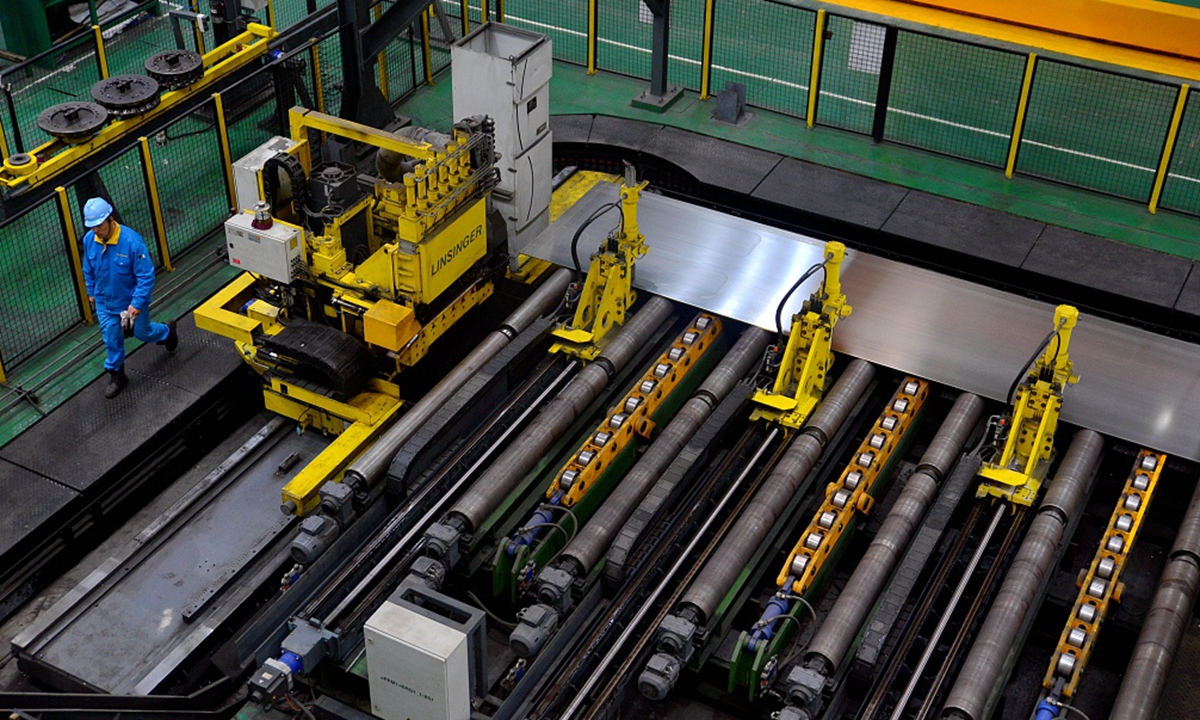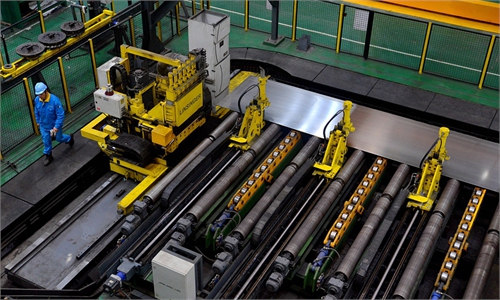
Industry PMI Photo:VCG
The Caixin services PMI, a private survey that gauges China's services sector activity, hit 54.3 in March, up from 51.5 in February and ending a consecutive three-month decline, as expansion in the sector picked up pace.
The gauge is in line with the official services PMI released by the National Bureau of Statistics, which rose 4.4 percentage points to 55.2 in March, setting the composite PMI at 55.3, up 3.7 percentage points from February.
Caixin earlier released March manufacturing PMI of 50.6, down 0.6 percentage points from the previous month to lowest point since May 2020. The rise in services PMI and decline in the manufacturing PMI set the Caixin composite PMI at 53.1, up 1.4 percentage points from the previous month as China's overall production and business activities have grown steadily.
The indicators showed that the end of the cluster COVID-19 cases in autumn and winter has boosted the number of new projects and activities as the market revived.
The employment index in the service industry rose three percentage points to reach above the expansion-contraction line. The increase in the number of employees is still not enough to absorb the influx of new orders, and the backlog of service industry increased slightly in March, according to the Caixin survey.
Service entrepreneurs have high confidence in future economic recovery and epidemic control as the business expectation index of service industry in March reached a new high since March 2011.
The surge of service PMI in March is a result of rising market confidence based on the China's accelerated vaccination rate, Cong Yi, a professor at the Tianjin University of Finance and Economics, told the Global Times on Tuesday.
"It is believed that the reading will increase gradually in the following months as more people receive vaccinations," Cong said.
Compared with strong domestic demand, external demand still has room for improvement, according to Caixin data.
In March, the index for new export orders of service industry was in the contraction range for a second consecutive month, with some enterprises reporting that the epidemic continued to dampen new overseas orders.
Experts also waned of inflation risks as the rising raw material prices, labor costs and energy prices push the service industry input price index in the expansion range for nine consecutive months.
"The price indexes of manufacturing and service industries have been rising for several months, and the pressure of inflation is becoming increasingly prominent," said Wang Zhe, an analyst with Caixin.
Global Times

